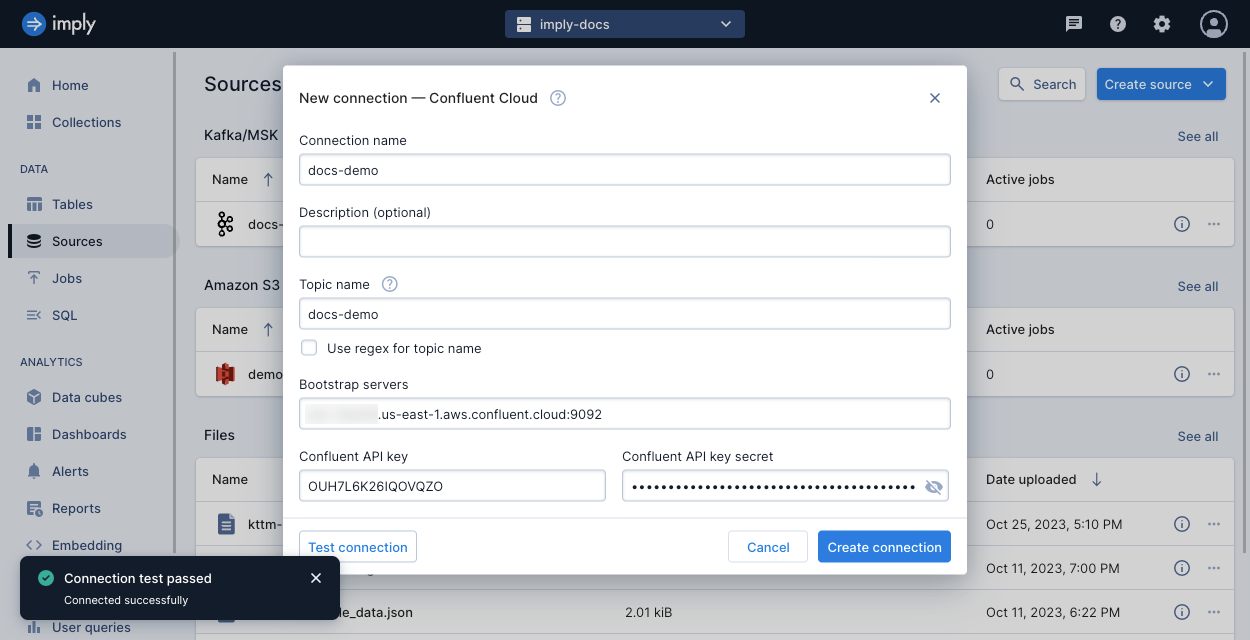Connect to Confluent Cloud
To ingest data from Confluent Cloud into Imply Polaris, create a Confluent Cloud connection and use it as the source of an ingestion job.
The following characteristics apply to ingestion from Confluent Cloud to Polaris:
- Exactly-once guarantees.
- Occurs across the Internet with TLS encryption and SASL authentication.
This topic provides reference information to create a Confluent Cloud connection.
For an end-to-end guide to Confluent Cloud ingestion in Polaris, see Guide for Confluent Cloud ingestion.
Create a connection
Create a Confluent Cloud connection as follows:
- Click Sources from the left navigation menu.
- Click Create source and select Confluent Cloud.
- Enter the connection information.
- Click Test connection to confirm that the connection is successful.
- Click Create connection to create the connection.
The following screenshot shows an example connection created in the UI. For more information, see Create a connection.

Connection information
Follow the steps in Create a connection to create the connection. The connection requires the following information from Confluent Cloud:
-
Topic name: The topic name or a regular expression that identifies the Kafka topics.
For details on creating a single connection that ingests from multiple Kafka topics, see Multiple topics per connection. -
Bootstrap servers: A list of one or more host and port pairs representing the addresses of brokers in the Kafka cluster. This list should be in the form
host1:port1,host2:port2,...For details on where to find the bootstrap server in Confluent Cloud, see Access cluster settings in the Confluent Cloud Console.You can also use the Confluent Cloud API to read a cluster and find its bootstrap server information in the
kafka_bootstrap_endpointof the cluster object.
Authentication
For Polaris to access your data from Confluent Cloud, create a resource API key in Confluent Cloud, and supply the API key and secret in the Polaris connection.
Ensure that the API key has access to the Kafka cluster. Note that resource-specific API keys in Confluent Cloud require an access control list that restricts access.
For information on creating and managing API keys in Confluent Cloud, see Use API Keys to Control Access.
Learn more
See the following topics for more information:
- Guide for Confluent Cloud ingestion to walk through the end-to-end process to ingest data into Polaris from Confluent Cloud, using the Polaris UI.
- Ingest data from Confluent Cloud by API to learn how to ingest data from Confluent Cloud using the Polaris API.
- Ingest Kafka metadata to include Kafka metadata with the ingestion job.